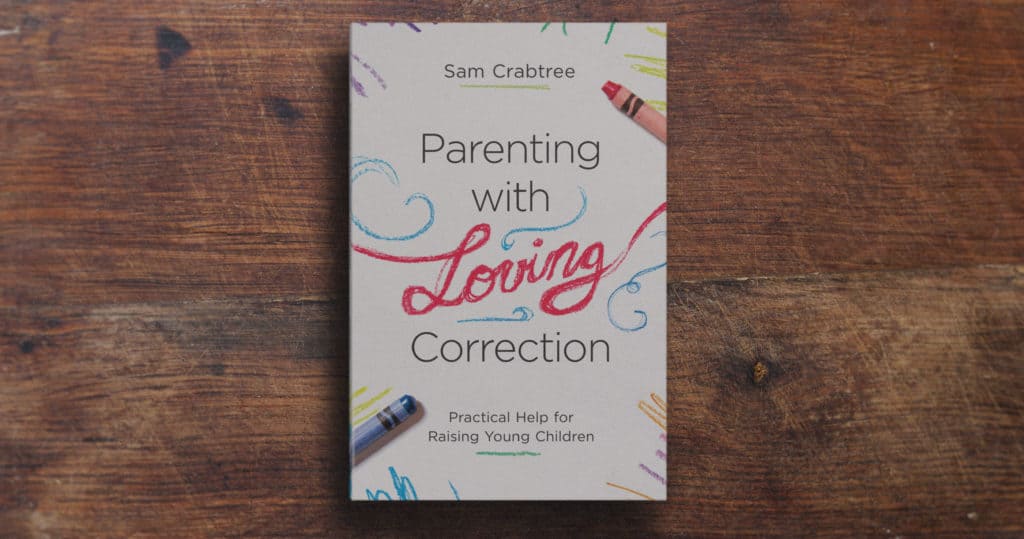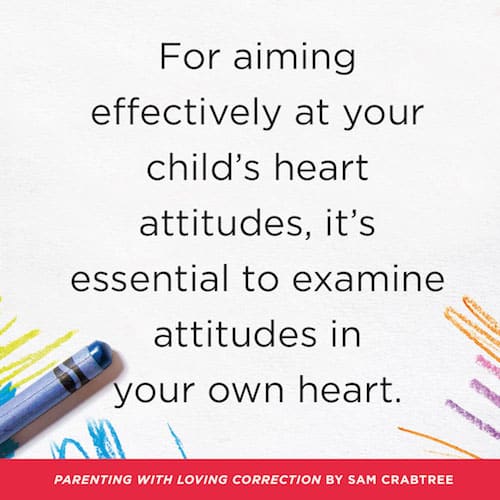Parenting while joyful can sometimes be painful. How you respond to the the little people God has given you can shine light on your innermost thoughts. I have leaned that how I react and respond to my children when they are disobeying can directly reflect at times my idolatrous thinking. It has and will continue to be an opportunity for me to grow in sanctification and self control.
I am thankful for books like Parenting with Loving Correction: Practical Help for Raising Young Children by Sam Crabtree that point me back towards the gospel and away from my own sinful nature. In doing this I am a more effective parent because I realize that God gave me the four children I have for their good and for mine as well as to glorify God.
Below are just a few highlights from this book. I highly recommend it if you are in need of encouragement or new strategies to deal with disciplining your child. It is a short read and will be well worth your time and money!
I received a copy of this book from Crossway to review. All opinions are my own.

What is Corrective Discipline?
Corrective discipline means:
- Identifying actions or attitudes of your child that are unacceptable when weighted against clear and explicit standards, then
- acting promptly and decisively to move your child in the direction of compliance with those standards.

The Heart of The Matter
Discipline aims at fostering a specified pattern of character, in the strength God supplies. If you just address outward behaviors without getting to the heart the risk greatly increases for a child to gravitate to external conformity, moralism, and legalism.
While it is great if your child obeys when it comes to discipline the goal should be to impact the heart. Heart transformation will lead to sincere cooperation because that is change that God fully creates and sustains. Proverbs 20:11 tells us that “Even a child makes himself known by his acts, weather his conduct is pure and upright”. A child’s true character will be known by his behavior.
Young children are spiritually unregenerate. Using wise discipline that requires obedience from children can cause them to become aware of their own sin and their need for Christ.
The most important point here is to note that when correction is done well it honors God. As parents we can’t change or stop our children from sinning but we can create a clear association between a rebellious action so that our child understands the consequences to disobedience. If we can’t and don’t expect our children to yield to our authority how can we ever expect them to yield to God.
3 Core Imperatives for Wise Correction
Discipline does not destroy the child but attacks the things that would destroy him. Failing to discipline invites your child to a regrettable future. Wise correction is regret management for all concerned. There are 3 core things to keep in mind for wise correction.
- Keep it God centered.
- Speak truth – always mean what you say.
- Reward obedience, not disobedience.
These several chapters were filled with amazing insight! God is loving and holy and good. I appreciated the example of aiming our children to be good and not “normal” (conforming to everyone else). Parents need to aim for their children’s goodness. When the author’s children became older he would say to them as they were leaving the house “Don’t be normal. Be good”.
Being normal in our culture is an unwise goal because our culture is broken and corrupt. If we tell our kids to “act normal” we are inviting them to look around to their peers to set the standard.
Good correcting must also be preceded by lots and lots of good affirmation. By saying yes often you establish many affirmations with your children and they are more likely to accept your no when they make an unwise request.

There is an entire section devoted to practical strategies to help with before you correct, in the moment, plus questions from parents.
Parenting with Loving Correction: Practical Help for Raising Young Children by Sam Crabtree is available on Amazon.





















